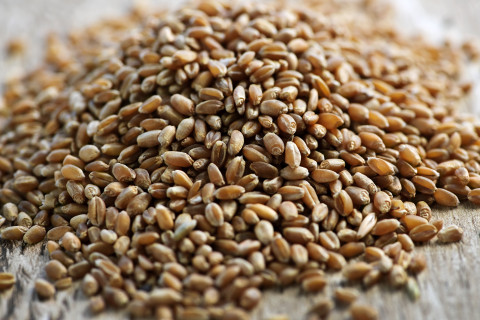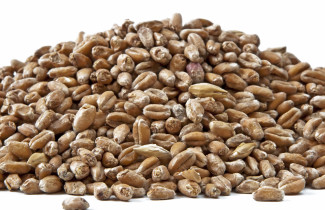Cereal foods already play a major role in the diet in most countries world-wide, as the main dietary source of energy, carbohydrate, dietary fibre, and plant-based protein. However, currently, less than half of the grains are used for human consumption. Changes in grain consumption and novel cereal protein-enriched food innovations could play a major role in transitioning towards a more sustainable food system for healthy diets, conclude Nordic researchers in a joint review published in Nutrition Reviews.
“Both scientists and public seem to have missed the yet untapped potential that grains can contribute towards a more sustainable food system and a healthier population. Even small changes in dietary patterns could make a large difference both to environment and health and grains could represent one of these possibilities,” says Professor Rikard Landberg from Chalmers University of Technology in Sweden.
Food production is responsible for 26 per cent of global greenhouse gas emissions. Increased use of plant-based foods to replace animal-based foods such as meat and dairy is one of the strategies to meet sustainability targets. This includes improving human health, particularly in the Western world.
A joint consortium of researchers within food, nutrition, environment and medicin from Nordic Universities and institutes developed a potential scenario to reduce meat intake in Europe and replace it with more sustainable and healthier whole grain-based foods. Which foods shall be used and what are the nutritional consequences and the implications for the environment?
“In our scenario, if 20 per cent of the current daily European animal protein intake was to be replaced by plant-based protein, 50 per cent could come from cereals. This would mean less than 6 grams more cereal protein daily, corresponding to a serving of 60 grams of grains” says Senior Adviser Kaisa Poutanen, VTT Technical Research Centre of Finland. The current cereal protein intake would need to be increased by 19 per cent. With an average content of 10 per cent protein in grains, this would mean an additional need of 15 million tons of grains, which corresponds to 5 per cent of the current European grain production.
“Since only one third of the current grain production is used for human consumption, there is a possibility to switch from animal feed production to human consumption if consumers would accept it. Such transition would correspond to an increased consumption of about 60 grams per day – for example three slices of whole-grain rye bread or a large portion of oatmeal,” says Anna Kårlund, Postdoctoral researcher at University of Eastern Finland.
Whole grains are beneficial to health and a high intake has consistently been associated with reduced risk of developing type 2 diabetes, coronary heart disease and colorectal cancer in observational studies. Whole grains are rich in dietary fibre, vitamins, minerals, and bioactive compounds, but grain protein contains low amounts of the essential amino acid lysine. Therefore, the nutritional composition of the overall diet should be highlighted to ensure an optimal amino acid intake. This can easily be done by increased intake of legumes to complement cereal protein.
Furthermore, a strong future focus from the industry on processing and product design will benefit both society and industry.
Increased availability and use of new protein-rich cereal food concepts, including dairy and meat analogues with well-balanced nutrition profiles, along with a shift towards more whole grain traditional cereal food, could help in the transition towards healthier and more sustainable diet.
The consortium included researchers from VTT, University of Eastern Finland, University of Turku, Swedish University of Agricultural Sciences, Chalmers University of Technology, Uppsala University, and Danish Cancer Society Research Centre.
For further information, please contact:
Postdoctoral researcher Anna Kårlund, University of Eastern Finland, Institute of Public Health and Clinical Nutrition, anna.karlund (a) uef.fi, tel. +358 50 436 0480, https://uefconnect.uef.fi/henkilo/anna.karlund/
Senior adviser Kaisa Poutanen, VTT Technical Research Centre of Finland, kaisa.poutanen (a) vtt.fi, tel. +358 40 540 3326
Kaisa S Poutanen, Anna O Kårlund, Carlos Gómez-Gallego, Daniel P Johansson, Nathalie M Scheers, Ingela M Marklinder, Anne K Eriksen, Pia C Silventoinen, Emilia Nordlund, Nesli Sozer, Kati J Hanhineva, Marjukka Kolehmainen, Rikard Landberg, Grains – a major source of sustainable protein for health, Nutrition Reviews, 2021;, nuab084, https://academic.oup.com/nutritionreviews/advance-article/doi/10.1093/nutrit/nuab084/6422500?searchresult=1



